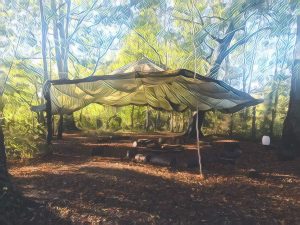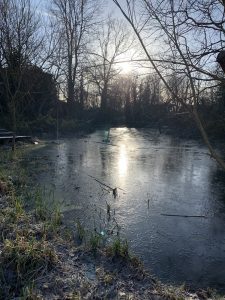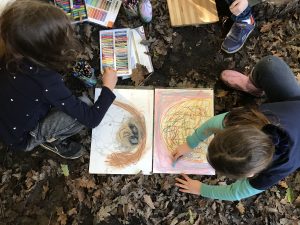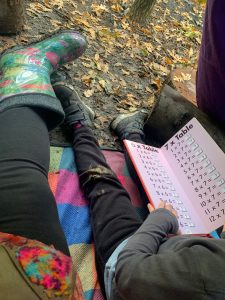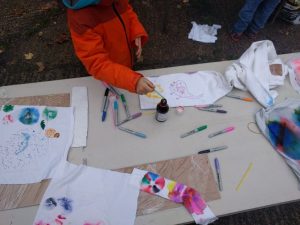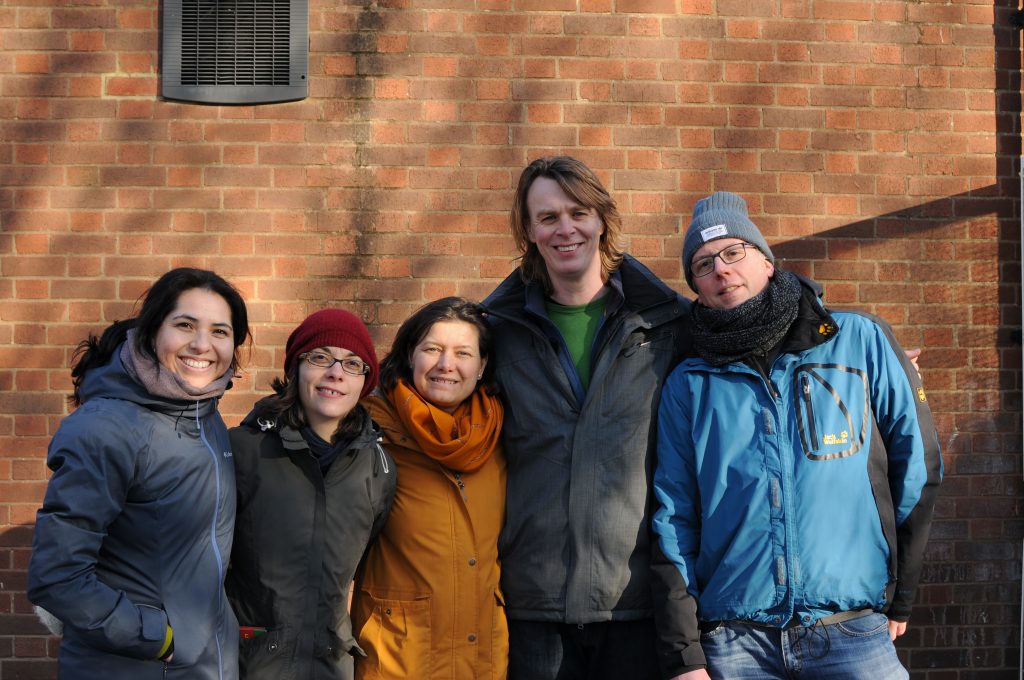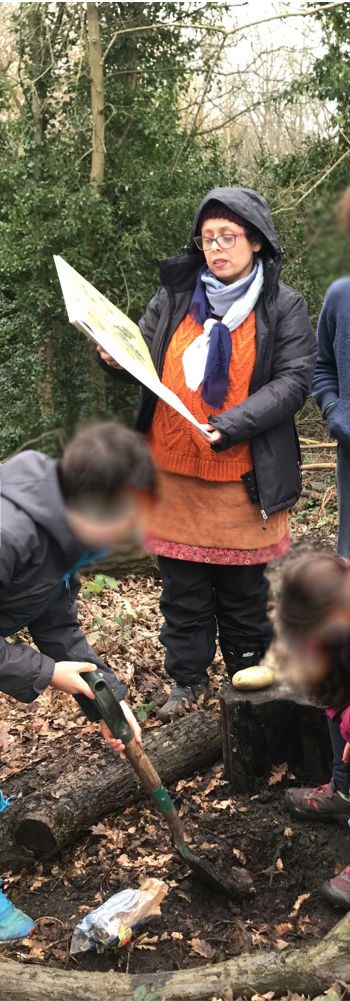Rowan Salim
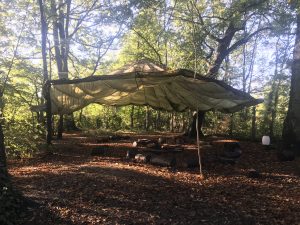
When we opened Free We Grow in 2017, myself and three families got together to imagine the project. It was driven by a strong sense of wanting to create an environment where children can grow free and connected. Free to learn and play, and connected to themselves, their community and the more than human world around them. The belief, or hope, is that by doing so, children and communities and the land can grow and be well. What emerged is a community of practice. We are learning how to do this, exchanging practice with other emergent groups, and living joyfully.
As part of this initial gathering, was a promise. The founding team consisted of people with heritage from Iraq, from Britain, from Italy, Columbia, Spain and Germany and it felt important to us that the community that emerged would be an inclusive community. The promise we made 6 years ago was to never turn a family away for financial reasons. It is easy in today’s world to become siloed. Societal structures have a tendency to agglomerate people with shared characteristics. One way this seems to happen is through a paywall. You can take part in a community so long as you can pay to do so. This inherently felt like a barrier to the ideals of the project.
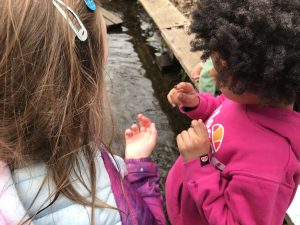
Currently home education does not get any government funding (email us if this is incorrect!) The solution we have been dancing with over the last 6 years has been to lean into and explore the idea of gift culture. Gift culture is an approach to life which recognises the relationships and reciprocity in all living systems. Money can be part of the currency of a gift culture, but gift culture also recognises other currencies like time and skills and care and joy.
For the first 5 years of the project, our promise held true and somehow we made ends meet by keeping costs low, relying on gifted time for administration and cover, developing an innovative procurement policy, inviting families to contribute in kind through supporting day to day tasks and providing cover, and inviting higher earners to pay forwards into our community fund to cover costs.
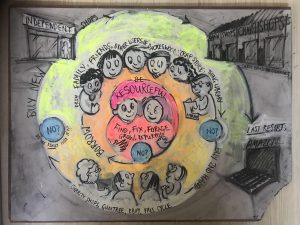
In our 6th year our promise took a leap forwards. Whilst families with lower access to money had been applying, we felt that the price associated with the project still put some families off. We also noticed that black and brown families and working class families were more excluded and we were aware that colonial histories, both overseas and in Britain through the enclosures were at the root of this exclusion.
We decided to become more explicit in our promise and actively invited families who shared this vision and dream of childhood who may not feel able to ask, to go ahead and apply anyway. We knew that this would bring forth a book keeping challenge, but we felt that inclusion and representation were so fundamental to the vision, that we took the leap.
Today we have a beautiful and diverse community, representing so many walks of life and with so much to give and celebrate, that we really feel blessed.
Last year, in order to dive deep into gift culture and try to understand how it might blossom even more, we organized a Giftival. This was a one month festival of gifts where members of the community – children, parents, friends and neighbors – offered events, workshops and gatherings for free to the local community. We hosted litter picks, story telling, games workshops, art workshops, breathing workshops, food waste events and much more. The Giftival was a month of connection, joy and exchange, and one of the key learnings I take from it, is a re-emphasis that community cannot form behind closed walls. This time the wall was not just the paywall, but the wall or fence around Dacres Wood.
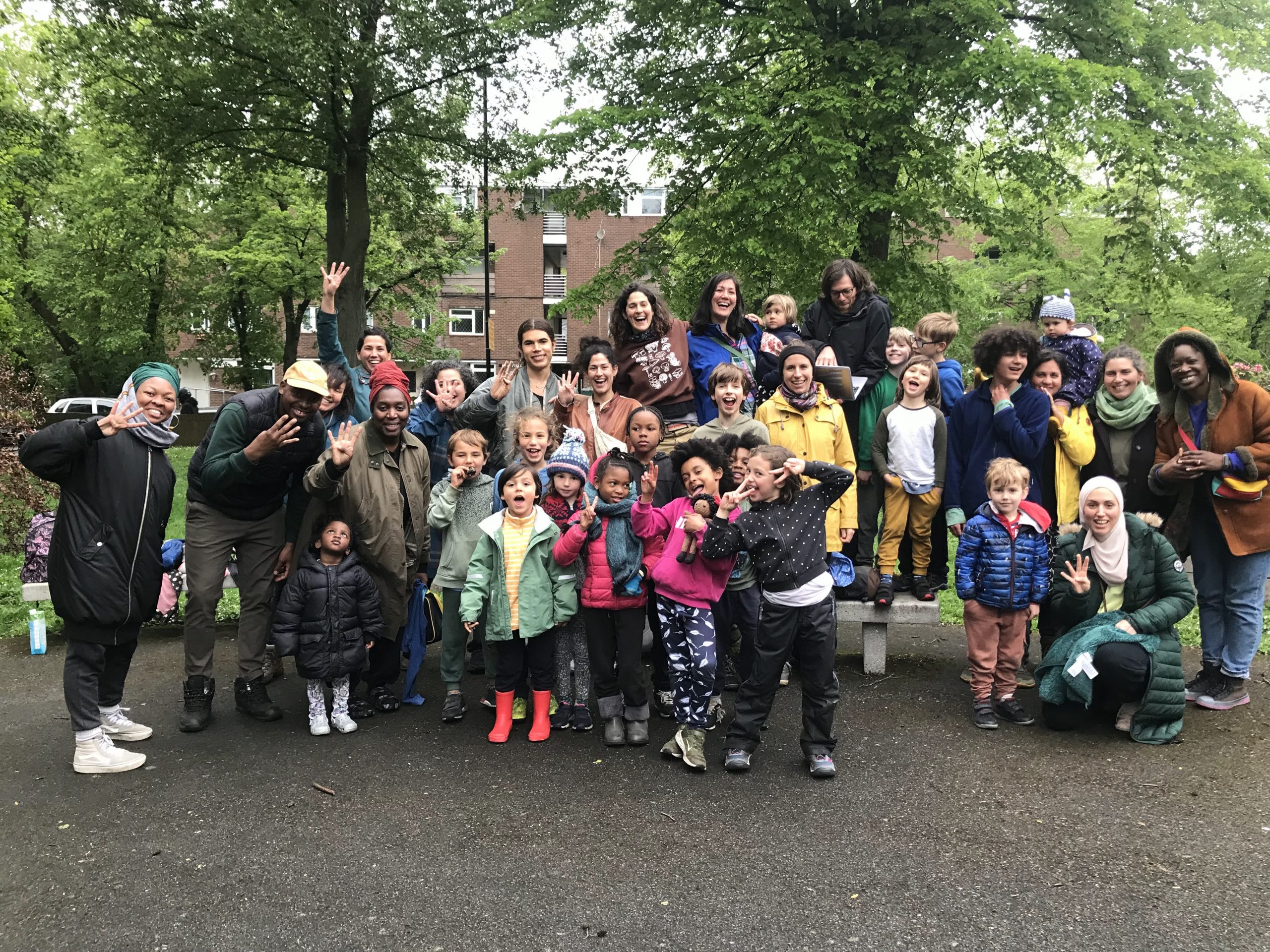
It became apparent that even if our community is inclusive, access to the land is restricted. During the month of the Giftival, we welcomed over 400 people to Dacres Wood Nature Reserve. Many of these visitors lived locally but some had never visited the reserve before. Others didn’t even know it existed. And those who had visited before hardly had enough opportunity to get to develop a caring relationship with the land through regular contact.
We realized that as a community, we are in a privileged position to broaden access, not only to our project, but also to the land. And so, this year, we are looking to work closely with the Friends of Dacres Wood and Lewisham Council to support more regular open days, intergenerational and family friendly events to support people from the broader community to gather in the woods, to care for each other and the land.
All of this still leaves us with the book keeping challenge! Despite keeping costs low, we are still looking to bridge the funding gap created by offering subsidized spaces. The project continues to incur running costs which primarily include rent of the site and facilitators’ salaries.
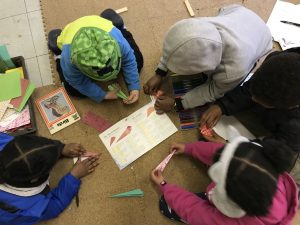
And so we are exploring 4 avenues for fundraising! Here they are:
1- We have launched a crowdfunder! If you love the project, are inspired by it and have capital to spare, please consider contributing to our crowdfunder which will enable us to continue our promise never to turn anyone away for financial reasons!
2- We are becoming a Community Interest Company! We have always been a not for profit enterprise, but this year we are looking to convert to be a CIC so that we can actively apply for grants. If you know of any grants or foundation which you think would be interested in supporting our project please write to us!
3- We are going to register for OFSTED’s voluntary child care register. This has been a scary process, as we are keen to ensure that children’s freedom is not jeopardised. But following a long period of research, we have come to understand that the voluntary register should not impact on our pedagogical approach but rather focuses on health and safety and safeguarding, which we are confident we adhere to the highest practices.
4 – We will broaden our community events and services. This will include supporting more free open days and offering free or donation based community events. Any funds raised through these will also contribute to our community fund and our effort to maintain our promise. We have just hosted the September Friends of Dacres Wood Open Day and our next event, Soul Sanctuary, is taking place this coming Sunday the 8th of October (in Battersea). Follow this link to find out more!
Thank you for reading this far! We’d love to stay in touch, in which case we invite you to join our community mailing list by pressing this link. Our next open day at Dacres Wood is this September the 30th from 1-4pm where one of the parents will be offering storytelling around the fire! So do come by, have a chat, a walk around the woods and listen to some stories!

